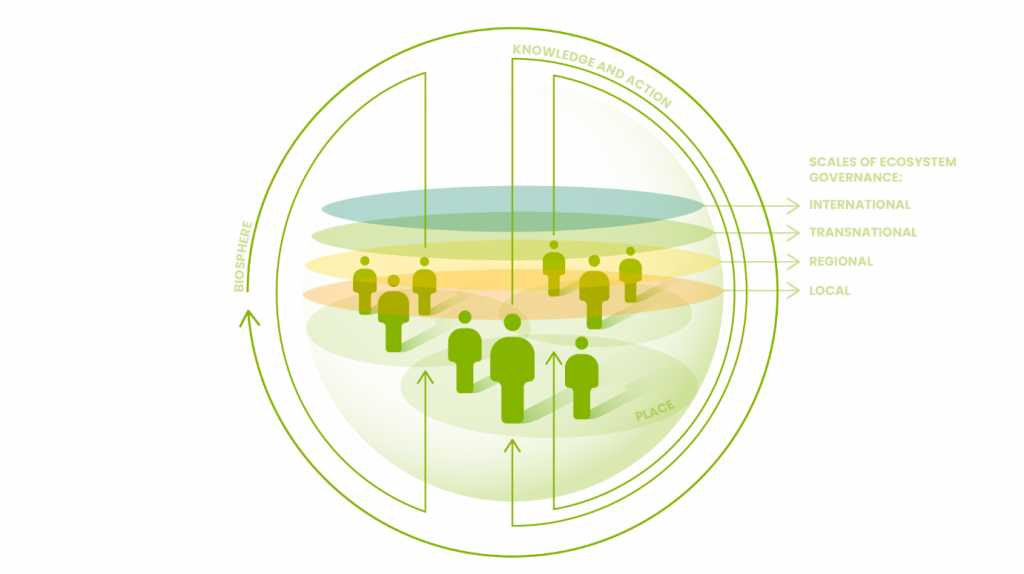Viola Hakkarainen
Knowledge processes such as creation, exchange and application are in many ways central to transformations towards sustainability. They create the baseline for organizing research and ecosystem governance. Knowledge processes manifest in interactions between and within different people such as researchers, policy makers and residents in diverse contexts and scales. However, perceptions of what is valid knowledge, how it should be produced and who is a credible knower vary between different people. These epistemic (knowledge and belief related) views are linked to different worldviews and reflect different ways of being in the world.
I define the epistemic dimension of human-nature connections as follows:
i. the ways our knowledges and perceptions of different knowledges shape our relationships, motivations and actions toward nature including decision-making concerning it
ii. the ways in which knowledges and perceptions of knowledges are shaped by nature
iii. the processes behind how different knowledge claims related to decision-making about nature are being justified at and across different scales and interfaces in knowledge interactions (Hakkarainen, 2022 p. 25)
The epistemic dimension enables recognizing the epistemic plurality that is inherent to what it is it to be a human in this world and interact with other people. It draws on the relational and situated views of knowledges.

Knowledges are shaped by being in the world. Our knowledges shape the world.
Why is it important to consider the epistemic dimension in sustainability science and ecosystem governance?
One of the key questions in sustainability science is how to reconcile diverse ways of knowing in planning and implementing sustainable futures. Sustainability science has adopted many approaches to collaborative knowledge production. What they hold in common to succeed is the need to recognize epistemic plurality to be able to navigate power dynamics in such knowledge processes.
If the epistemic plurality is not recognized and navigated in different knowledge processes, they can lead to conflicts or exclusion of some ways of knowing and epistemic domination of some views. Just sustainability transformations require including many voices and views to ecosystem governance. This also requires being attuned to political nature of knowledge processes.
To conclude, we need to find ways to foster inclusivity in both in sustainability science and ecosystem governance to be able to foster processes towards more just and sustainable futures. The epistemic dimension of human-nature connections adds to recognition of the plurality which ideally contributes to collaboration, understanding and communication. The focus on the epistemic dimension helps shed light on subtle beliefs and perspectives and point out missing and marginalized voices.
ABOUT THE AUTHOR
Viola is a postdoctoral researcher at the Helsinki Institute of Sustainability Science (HELSUS) where she studies sustainability education in higher education institutes. Having a background in sustainability science, Viola’s focus is on knowledge processes, collaboration and inclusivity that can support just sustainability transformations.
READ MORE
Hakkarainen, V. (2022). Towards inclusivity in ecosystem governance: The epistemic dimension of human-nature connections and its implications for sustainability science. [Doctoral dissertation, University of Helsinki] http://urn.fi/URN:ISBN:978-951-51-8004-9